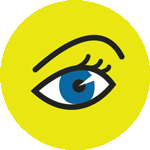Profiles, Pages, Groups, and Chats – What's the Difference?

Facebook has become essential for personal connections, business marketing, and community building. However, many users are often confused about the platform’s features, especially regarding Profiles, Pages, Groups, and Chats. This article will break down these components to help you better navigate the Facebook ecosystem.
What is a Facebook Profile?
Your Profile is your personal space on Facebook. When you sign up, this is what you create to represent yourself as an individual. It contains your name, bio, photos, and personal updates. Friends can connect with you by sending friend requests, and you can follow other profiles to see their posts. The key purpose of a profile is personal interaction.
Key Features:
- Posts, photos, and stories shared with friends or followers.
- Customizable privacy settings (you control who sees your content).
- Used for connecting with people on a personal level.
What is a Facebook Page?
A Page is a public profile created for businesses, brands, celebrities, or organizations. Unlike a personal profile, a Page is designed to communicate with fans or customers. People can “like” or “follow” a Page to stay updated on content without needing approval, and Pages have access to Facebook’s advertising tools.
Key Features:
- Public, so anyone can view and interact with it.
- Insights and analytics to track engagement.
- Can run ads and promote content.
- Ideal for businesses, public figures, and brands.
What is a Facebook Group?
A Group is designed to unite people around a shared interest, hobby, or cause. It can be public, private, or secret. Members can join, participate in discussions, share content, and collaborate within the community. Groups foster more interaction among members than Pages, which tend to be more one-directional.
Key Features:
- Community-based with active discussions.
- They can be private or public, with admins moderating content.
- Members can post and interact freely.
- Great for creating a sense of community around niche topics.
What is a Facebook Chat?
Facebook’s Chat feature, Messenger, is for private conversations between individuals or small groups. While you can chat one-on-one with friends, Messenger also supports group chats where multiple people can communicate in real-time. It’s perfect for personal, direct communication that doesn’t need to be public.
Key Features:
- Instant messaging for personal or group conversations.
- Ability to share text, photos, videos, and more.
- Used on both Facebook and as a standalone Messenger app.
- Great for direct communication and private discussions.
Conclusion:
Don’t give your business a personal profile—it doesn’t have a birthday, isn’t in a personal relationship and probably not a great friend. This is a little advice inspired by my cousin Mo. Do you think he got this far?
Facebook offers various tools for connecting with others, each designed for different types of interaction. Profiles are personal, Pages are public-facing for businesses or brands, Groups are community spaces for interaction around shared interests, and Chats (via Messenger) provides a more intimate way to communicate one-on-one or in small groups. Understanding these differences can help you use Facebook more effectively, whether building a brand, creating a community or staying in touch with friends and family.
This content was co-created with the help of Creative Business Buddy, an AI writing assistant

